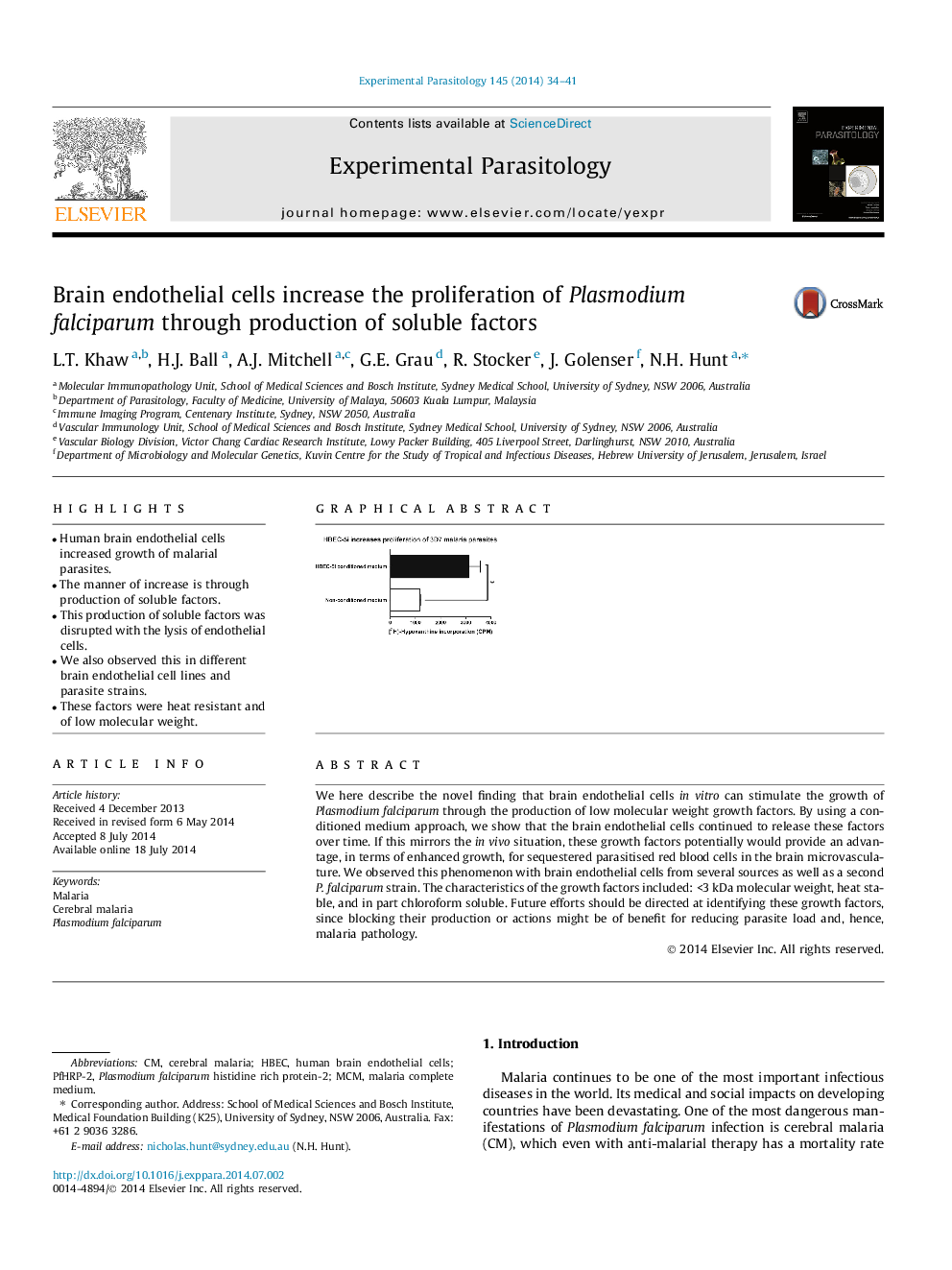| کد مقاله | کد نشریه | سال انتشار | مقاله انگلیسی | نسخه تمام متن |
|---|---|---|---|---|
| 4371092 | 1617019 | 2014 | 8 صفحه PDF | دانلود رایگان |
• Human brain endothelial cells increased growth of malarial parasites.
• The manner of increase is through production of soluble factors.
• This production of soluble factors was disrupted with the lysis of endothelial cells.
• We also observed this in different brain endothelial cell lines and parasite strains.
• These factors were heat resistant and of low molecular weight.
We here describe the novel finding that brain endothelial cells in vitro can stimulate the growth of Plasmodium falciparum through the production of low molecular weight growth factors. By using a conditioned medium approach, we show that the brain endothelial cells continued to release these factors over time. If this mirrors the in vivo situation, these growth factors potentially would provide an advantage, in terms of enhanced growth, for sequestered parasitised red blood cells in the brain microvasculature. We observed this phenomenon with brain endothelial cells from several sources as well as a second P. falciparum strain. The characteristics of the growth factors included: <3 kDa molecular weight, heat stable, and in part chloroform soluble. Future efforts should be directed at identifying these growth factors, since blocking their production or actions might be of benefit for reducing parasite load and, hence, malaria pathology.
Figure optionsDownload as PowerPoint slide
Journal: Experimental Parasitology - Volume 145, October 2014, Pages 34–41
